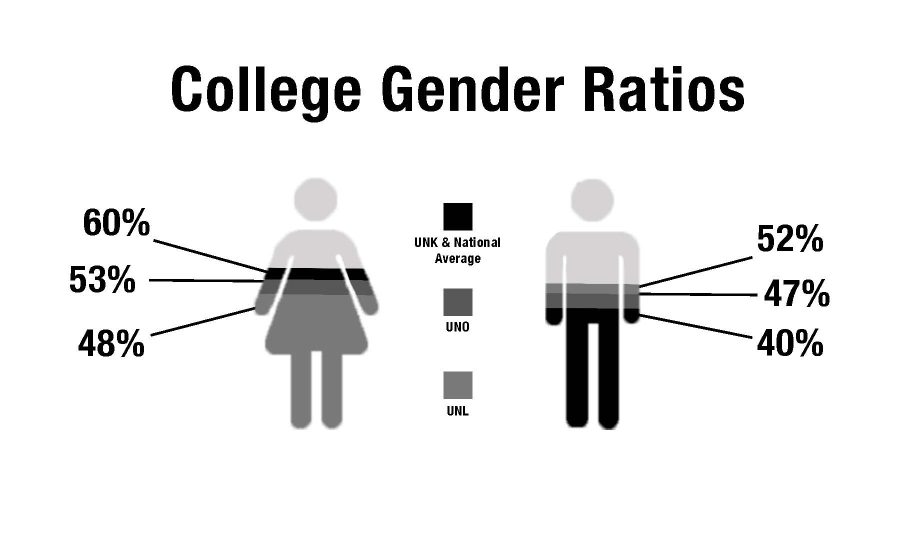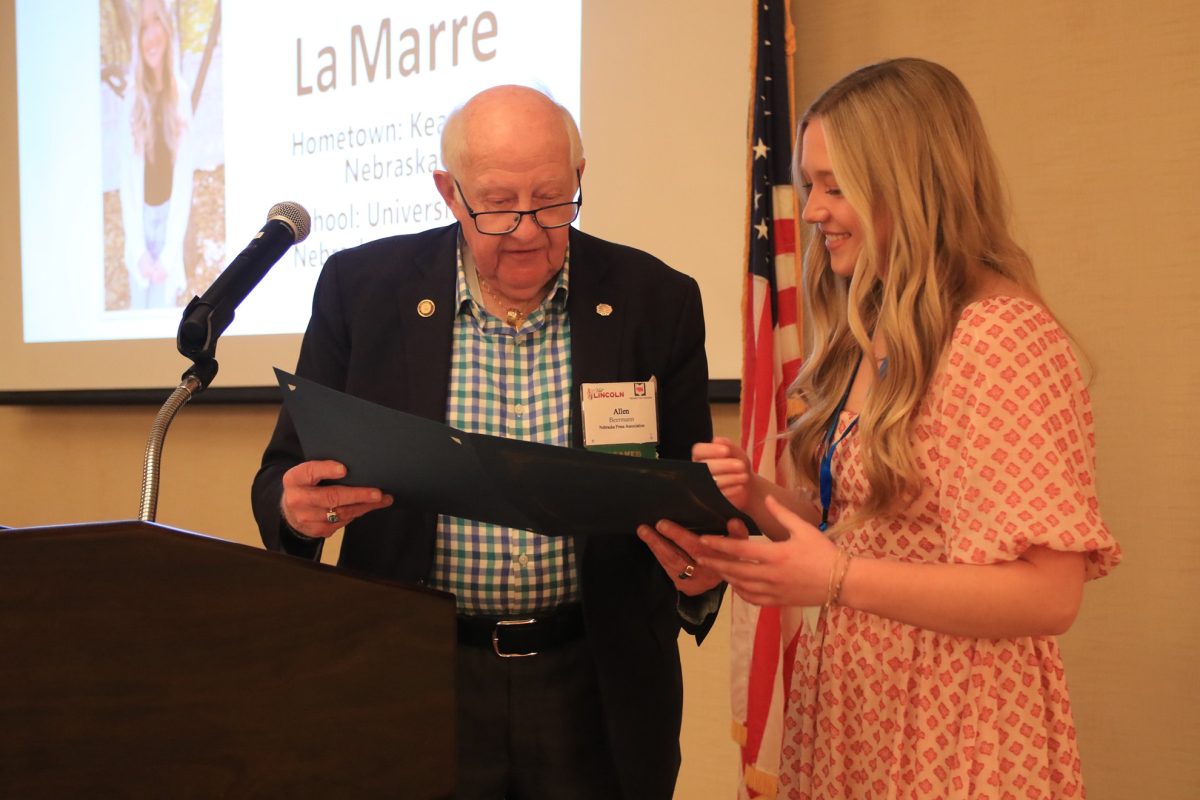There is a growing gender disparity on college campuses across the nation. Young men are abandoning higher education. This is a problem, but it may not just be a problem for young men.
Women on college campuses outnumber men by as much as six to four today. This is a significant change even from fifty years ago, when the roles were inverted in 1970 and men outnumbered women six to four.
What has driven this divide is not so clear.
It could be that men are more likely to leave education for low-qualification jobs in construction and industry. It could happen earlier, at the grade-school level — when boys have a harder time focusing and staying out of trouble. Some even claim that a changing political climate has made colleges more hostile towards men.
UNL is the lone institution in the Nebraska University system to buck this trend, with a population that is 52% male to 48% female. UNO has a ratio of 47% male to 53% female. UNK’s data is more in line with the national averages. According to collegestats.org, our university’s ratio is 40% male to 60% female.
But why aren’t women being compensated equally, even as their level of education surpasses that of men?
Take our great state of Nebraska, for instance. We’re especially behind when it comes to the gender pay gap. Women working in Nebraska can expect to make around $0.77 for each dollar a man makes.
Across demographics, the story is the same.
At the same level of education or in the same industry, a woman earns less than her male counterpart, and that’s before factoring in race or gender identity.
It is possible that the work of women is simply not valued as much as that of men, for whatever reason. This has grave implications for women in the workforce today, but it may also mean that the jobs and money are going elsewhere. And that has grave implications for women in the workforce tomorrow.
Perhaps more young women should consider trade and technical schools, or at least be less reluctant to consider them. Perhaps they should consider that in finally finding equality on college campuses the paradigm still may have shifted to favor men, and look at how the job economy is changing.
In the meantime, women should not shy away from discussing pay with their coworkers. Nebraska Legislative Bill 217 expressly prohibits “discrimination against an employee for communicating about employee wages, benefits, or other compensation.” The Omaha Women’s Fund supported this bill and lobbies for gender equality in the state. Knowledge is power, as they keenly note.
Change is on the way, but that change will not come on its own. For women to find true equality in the workforce, they will need to work for it, and we will need to remain vigilant.































